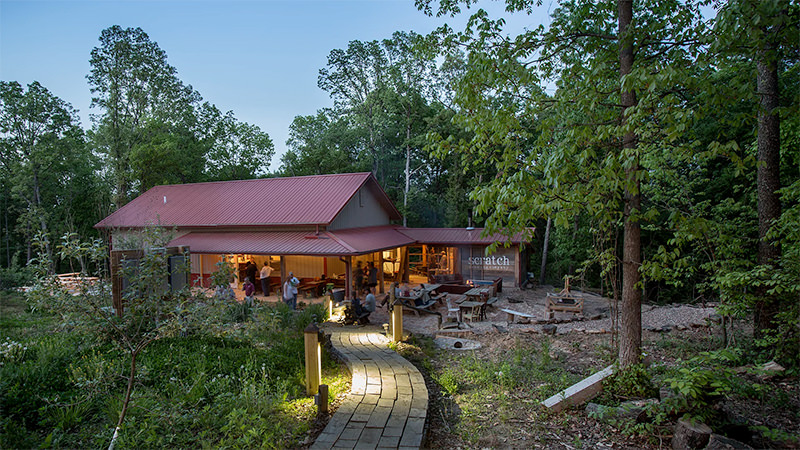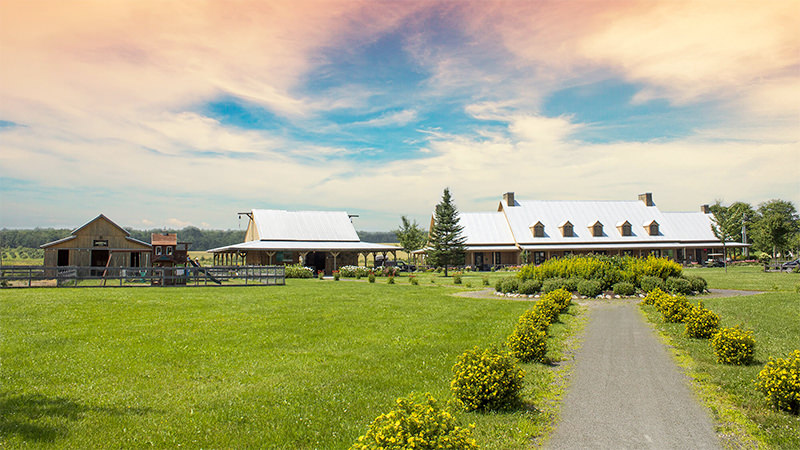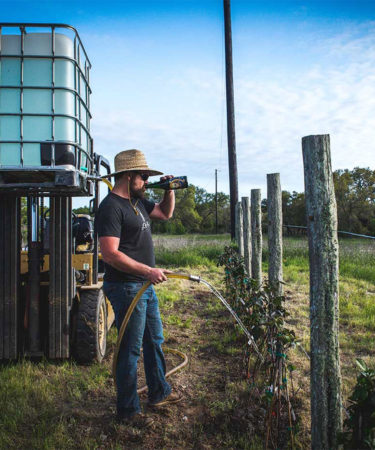The majority of beer produced in North America is brewed with grains grown on a large scale, often far from where the brews themselves are made. So while “local” breweries might be physically making beers onsite, most of their ingredients are shipped from far and wide.
Now some breweries are flipping that script. Much in the way that the Slow Food and farm-to-table movements began revolutionizing American foodways 15 years ago, forward-thinking microbreweries in the U.S., Canada, and Mexico are carefully sourcing ingredients with sustainability at the forefront.
Here are 16 microbreweries using hyper-local ingredients to support small-scale farming and showcase the flavors of their respective regions.
Great Northern Brewing
Based in Whitefish, Mont., Great Northern has been brewing craft beer in the Rocky Mountains since 1995. Wild Huckleberry wheat lager, one of its flagship beers, is made with juice from Montana huckleberries.
Arizona Wilderness Brewing
Southwestern flavors highlight small-batch beers from this Gilbert-based operation. Crystal Eyes uses local wildflower honey, and DHW: Get Your Filthy Hands Off My Desert is brewed with Arizona lemongrass and heritage Sonora White Wheat.
La Brü
This Morella, Mexico-based microbrewery has two “slow beers,” as part of Slow Food Mexico’s campaign to showcase local ingredients and small-scale producers. Its Maiz Azul, a cream ale, is made from Mexican blue corn, a pre-Hispanic ingredient.
Milkhouse Brewery
This one-acre agricultural operation in Mount Airy, Md. started as a farm. The owners started making beer to keep themselves sustainable. They grow the Cascade and Chinook hops used in their classic European-styled beers; and the Stillpoint Reserve series, launched in 2015, showcases locally grown grains, fruits, herbs, honey, and more.
Scratch Brewing Company
Sourcing ingredients from local farms and in the wild are what it’s all about at this Ava, Ill. brewery. The Wild Grapevine Wee Heavy, for example, uses foraged wild grapevine. The Squash Mild is brewed with squash cultivated and roasted on-site.

Humbolt Regeneration Brewery & Farm
Humbolt is California’s first brewery since Prohibition to grow and process all of its own ingredients, including barley, wheat, and hops. As part of its Community Supported Brewery program, members get a growler of beer each week.
Fullsteam Brewery
All beers from this Durham, N.C. brewery use a minimum of 10 percent local ingredients by weight, and celebrate North Carolina heritage crops like sorghum, southern basil, sweet potato, and more. The website highlights where each brew’s ingredients were sourced.
Southern Brewing Company
When it opened in 2015, on 15 acres in Athens, Ga., Southern Brewing was the state’s first purpose-built brewery. Before starting construction, however, its brewers captured Wild Azalea yeast on the property. With the help of the University of Georgia’s microbiology department, it’s continued to cultivate that yeast for its Wild Azalea Saison.
Quidi Vidi Brewery
To make its award winning Iceberg Beer, this brewery based in St. John’s, Canada sources that water from the region’s 10,000- to 20,000-year-old icebergs.
Jester King Brewery
Sitting on 165 acres in Texas Hill Country, Jester King is a European-inspired farmhouse brewery. Beers are brewed with ingredients — from hops to grapes — grown, foraged, and prepared on the premises or nearby. Cerveza de Mesquite is made with richly scented, locally foraged mesquite beans.
Propolis
Propolis’s local, seasonal beers reflect its Port Townsend, Wash. environment. The brewery uses malted grains grown throughout the Pacific Northwest and makes bittering agents with herbs and other plants that are cultivated or grow wild near the brewery.
Sly Fox
Located in Pottstown, Pa., Sly Fox brews a seasonally available beer that highlights the cyclical nature of life and agriculture. Circle of Progress is a lightly hopped pale ale made with barley grown and malted nearby. After mashing, the spent grains are mixed into the soil to feed the following year’s crop.
Allagash Brewing Company
This Portland, Me.-based elder statesman celebrates the agricultural history of its home state in the Sixteen Counties brew. Allagash sources and processes the grains for that beer — including wheat, barley, and oats — from within the state.
Parts and Labor Brewing
Based in a vintage Cadillac dealership, Parts and Labor showcases its agricultural setting by sourcing the wheat for some beers from a nearby family farm. Try them in Haas Local Wheat, a rotating series, or My Sister’s Side Hustle Belgian Wit, which features the grain in its unmalted form.
Microbrasserie Nouvelle France
In 2010, this Quebec brewery decided to shake things up and harness more control over its ingredients. It launched La Ferme Nouvelle-France to cultivate its own grains and began malting them itself, taking a hands-on approach from start to finish. Nouvelle France also brews four gluten-free beers made with Quebecois ingredients, such as buckwheat, elderberry, and plum juice.

Piney River Brewing Co.
Piney River has always celebrated Missouri’s Ozark Mountains by using its limestone-filtered water and crafting brews like Black Walnut Wheat to showcase its favorite regional crops. Now, the brewery is experimenting with locally harvested wild yeasts. Stay tuned.
